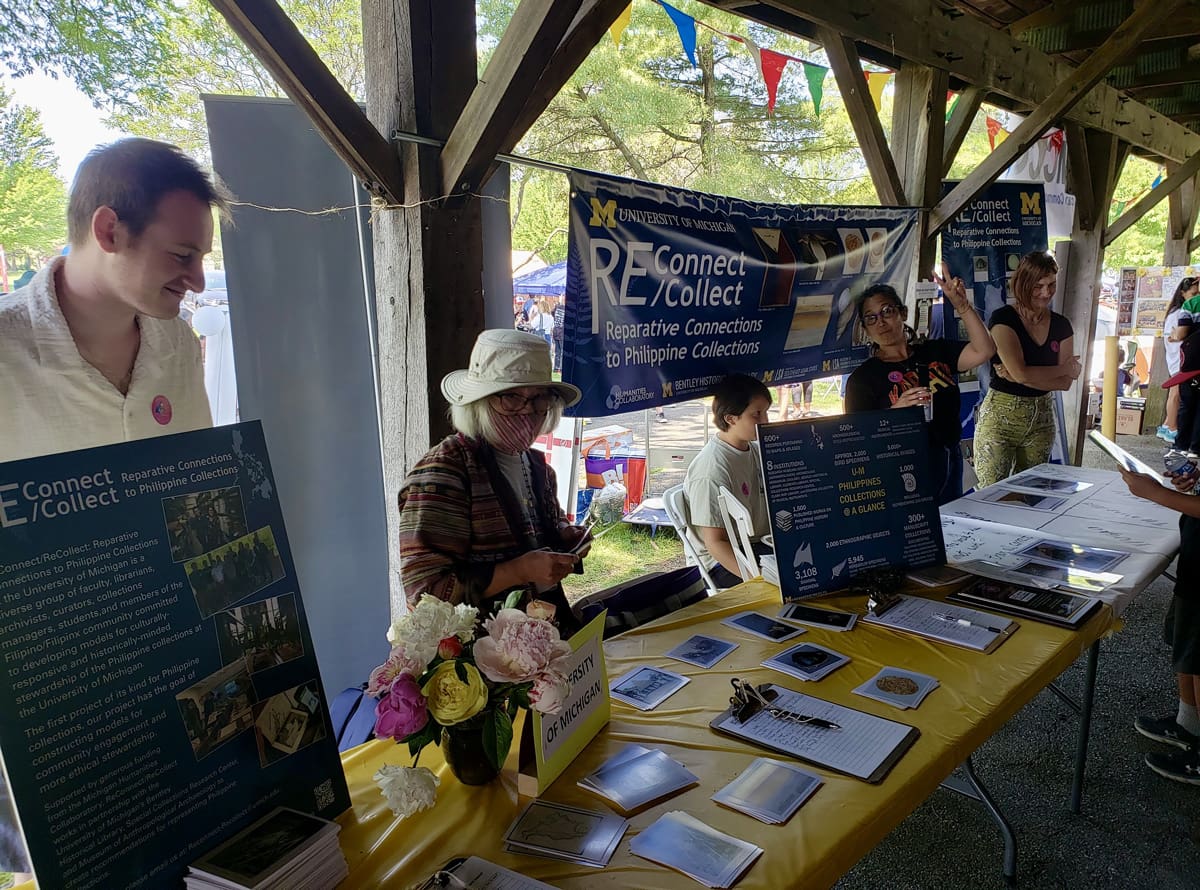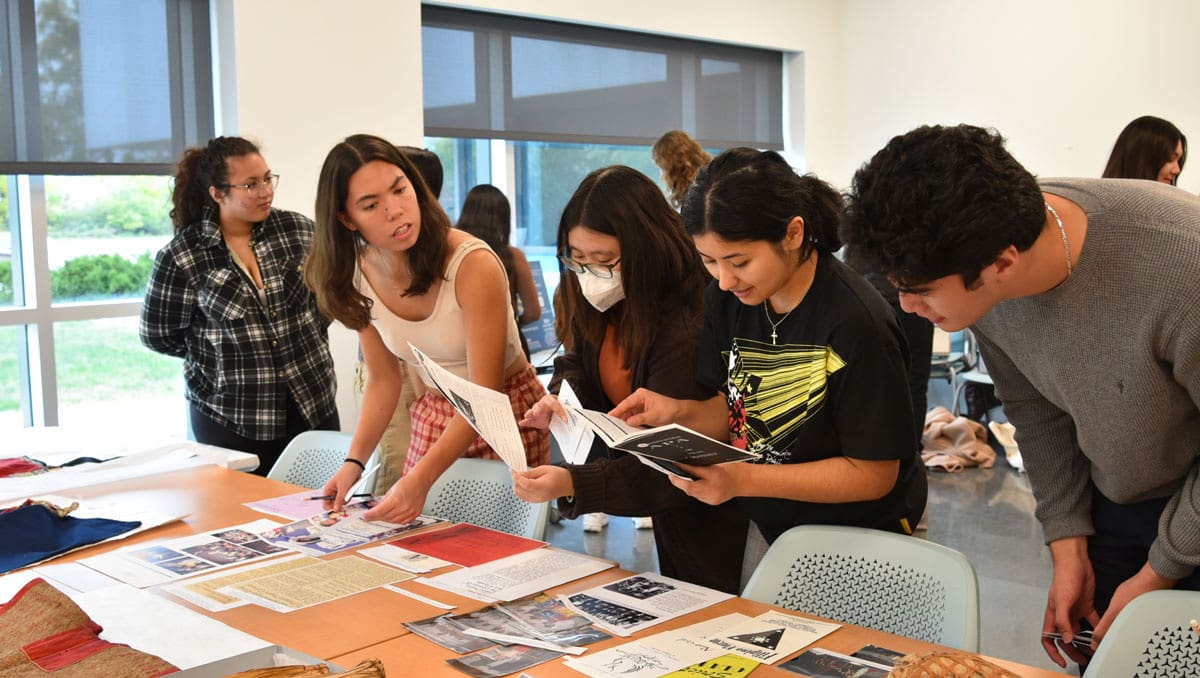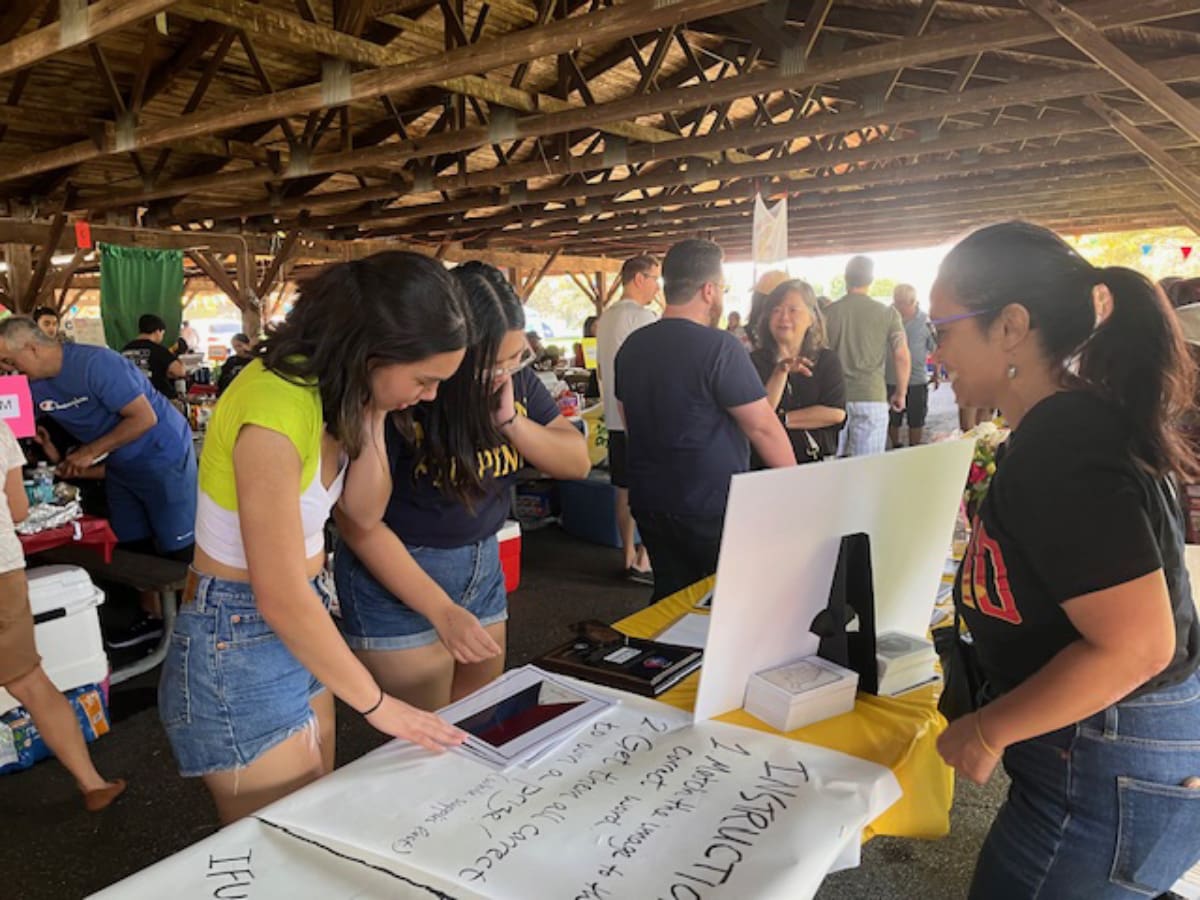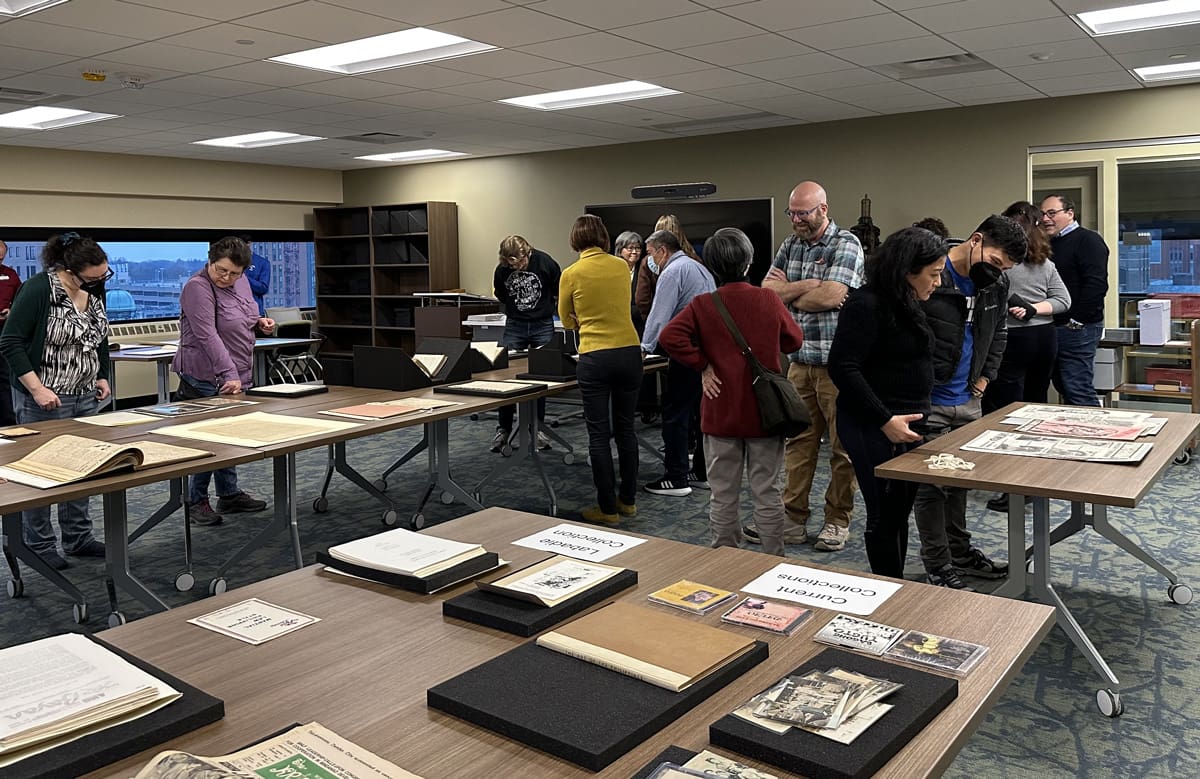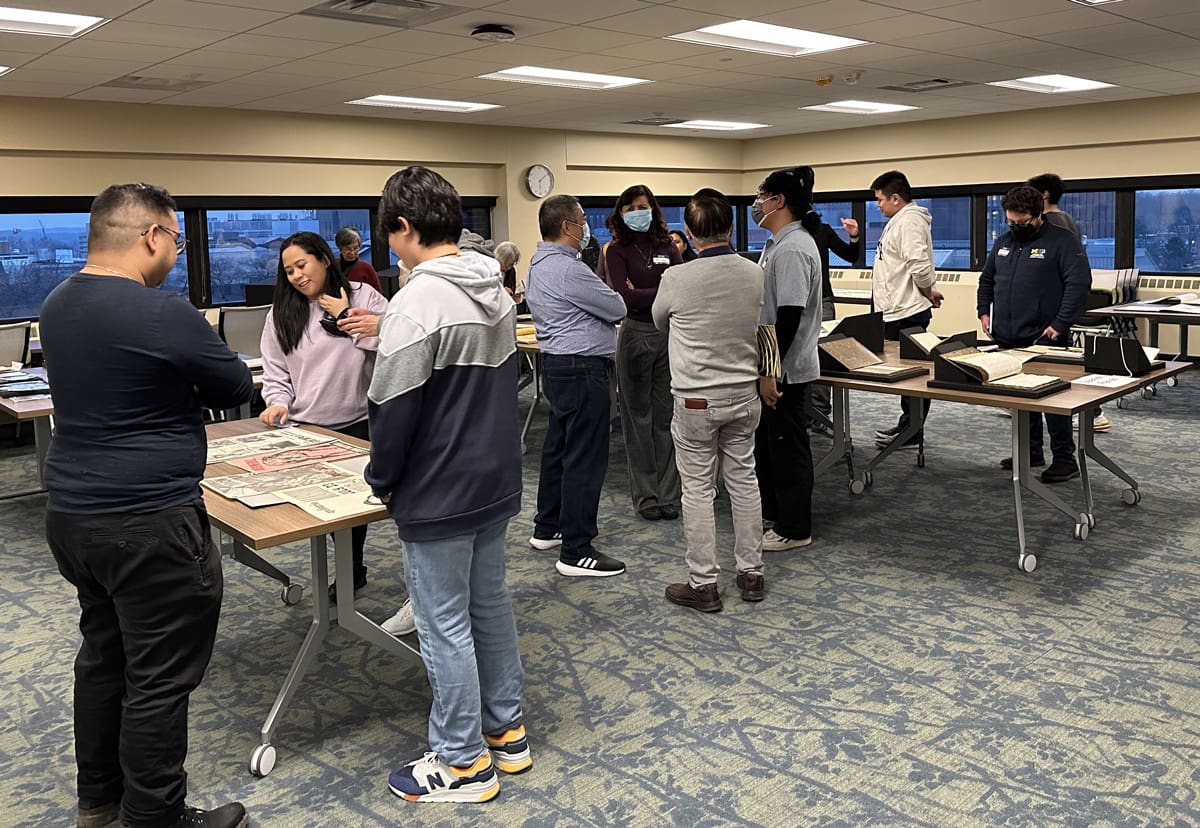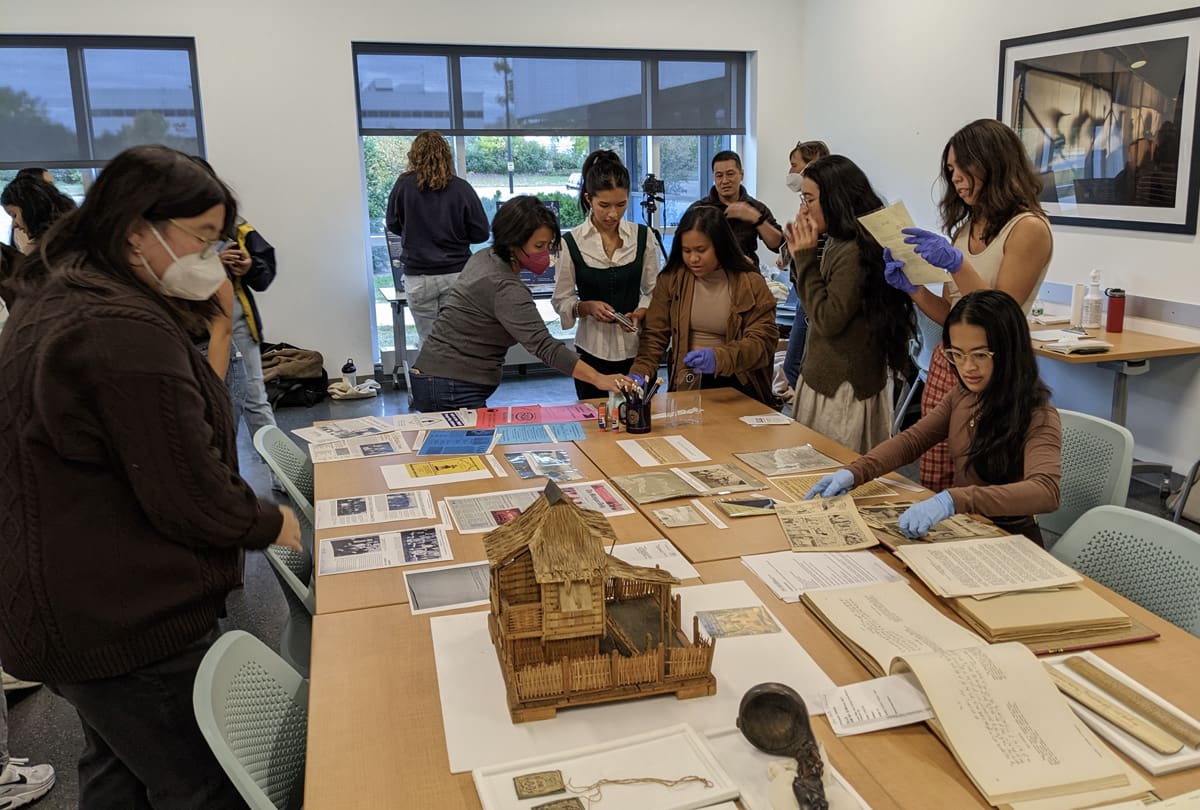Community Engagement
Connecting Communities with Philippine Colonial Collections
As an integral part of our reparative approach to colonial collections, we aimed to connect the Filipino and Filipino American diasporic communities in South-East Michigan and on campus with U-M’s Philippine Collections.
We identified important Filipino and Filipino American elders, stakeholders, communities, and associations to include in our collaborative efforts. In dialogue with these associations, we organized events to broaden public and community-based knowledge about the collections and to facilitate access to them.
The work of building meaningful community connections, however, has only begun. The series of events we hosted provides a blueprint for future collaborative community engagement opportunities on this campus and beyond.
Our community collaborations were guided by the following principles:
Make accessible and reconnect
U-M’s Philippine collections to local and regional Filipino and Filipino American community members and associations.
Deepen our understanding
of the value and meaning of these collections for Filipino and Filipino American communities locally and in the region.
Spread the knowledge
about, and foster engagement with, the collections through targeted participatory events off and on campus.
Invite community members
to further work towards reparative connections by sharing their perspectives and knowledge and by (co-)curating future exhibitions (travel exhibitions, community exhibitions, virtual exhibitions).
Build
long-lasting relationships with community members and associations.
Year One
Oct 2021: Philippine American Community Center of Michigan (PACCM) in Southfield
During Filipino History Month, we visited PACCM where Deirdre de la Cruz and Ricky Punzalan presented about the history and extent of U-M’s Philippine Collections, followed by Q&A. The lively discussion with the audience of over 60 people showed us that the community members were eager to learn about the collections firsthand. For many, this was the first introduction to the collections, and they expressed a desire to either visit the collections in person or to further explore the collections online.
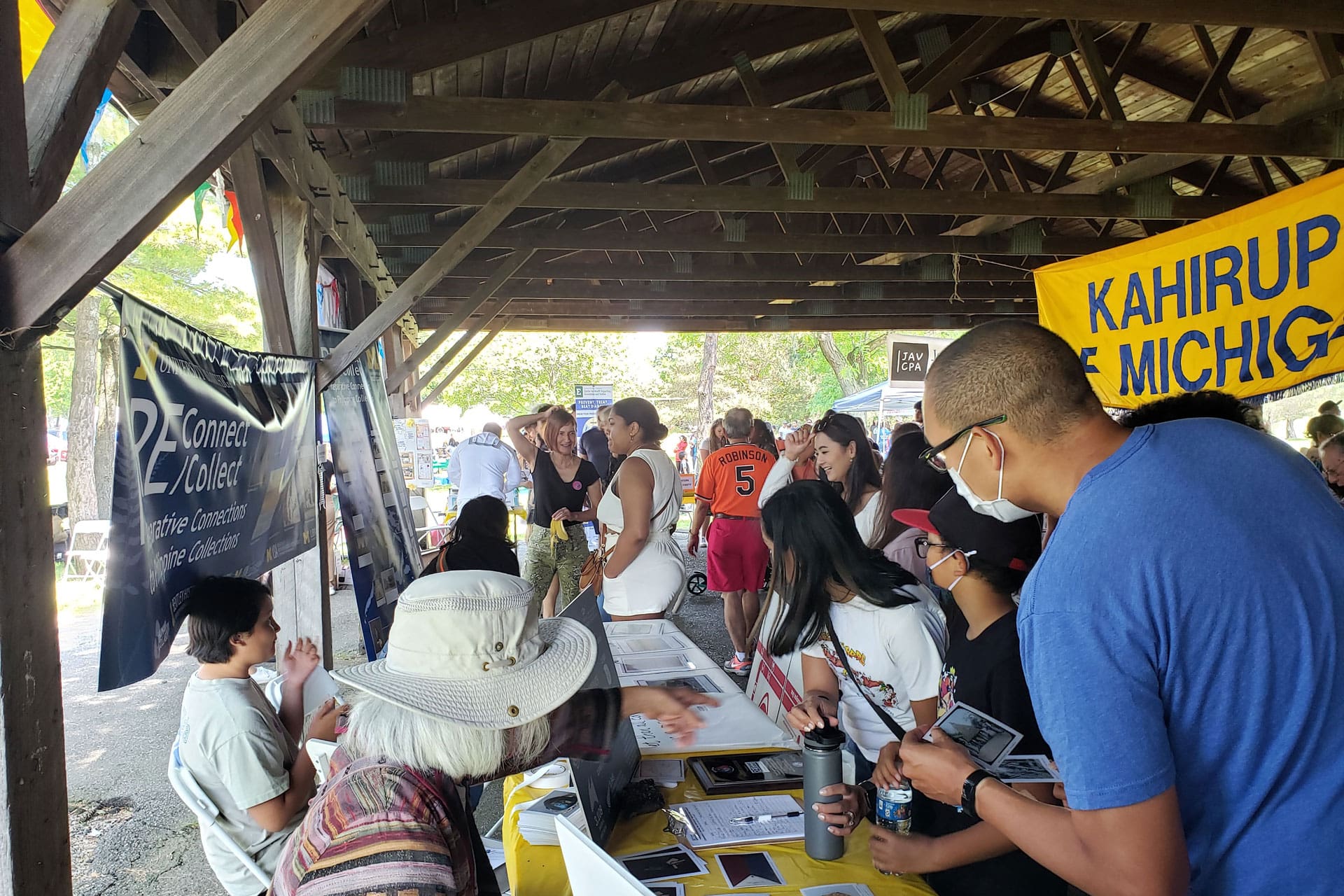
Kalayaan table with visitors, 2022
June 2022: FILAMCCO Kalayaan Festival, Hamich Park in Warren
As a Platinum Sponsor of the FILAMCCO (Filipino American Community Council of Michigan) Kalayaan 2022 celebration of Philippine Independence, we hosted a table at the association’s largest outdoor event of the year. For this occasion, we prepared a small travel poster exhibit, postcards, and interactive games to raise awareness about and promote community engagement with the Philippine Collections at the University of Michigan. Through our interactions with hundreds of participants we learned about their excitement about and pride in the collections. Many participants articulated their wish to visit the collections in Ann Arbor and we collected their email addresses to invite them to future on-campus events.
Year Two
Oct 2022: Open House for FASA students, U-M Research Museums Center
We had already established connections with the Filipino American Student Organization (FASA) on the U-M campus during the first year of our grant. In response to FASA students’ interest in visiting the collections, we organized an open house at the Research Museums Center, the home of the Museum of Anthropological Archaeology (UMMAA), with its Philippine collections. We complemented the display of selected cultural objects from UMMAA with materials from the Bentley Historical Library and curated them according to student centered themes “Journeying Here”, “Expressing Yourself,” and “Finding Community”. An exhibit passport encouraged individual responses to the displays in image and writing. Bentley materials included photographs and documents from historical FASA records held at the library, inviting students to forge connections with Filipino American students across time and to consider the Bentley Library as their own community archive. Students were excited to be able to experience the collections up close and to engage with them on their own time. ReConnect/ReCollect team members stood by to answer their questions.
January 2023: “We Collect/We Connect” Open House, U-M Special Collections Research Center
Hosted by U-M Special Collections Library, the event introduced the varied Philippine collections held by the institution to the public. This was the first public event featuring the Philippine collections in the library’s collection history. We marked the event by opening with a spoken word performance by ReConnect/ReCollect team member Paulina Fraser that engaged with the archive’s colonial history. Otherwise, the format was similar to the FASA open house in that it invited the audience to interact up close with selected historical materials pertaining to nineteenth century Philippine History and US colonialism: visitors perused letters, diaries, photographs, posters, and maps laid out on tables on their own time. The event drew an impressive audience of local and regional Filipino American community members, Philippine Studies scholars, and students.
Reflections and Recommendations
Our experience hosting artists and culture bearers of Filipino descent taught us a lot about collaboration in the context of Filipino cultural collections.
Below are reflections and recommendations based on insights gleaned from our two-year endeavor.
Network and Connect
The network of Filipino and Filipino American organizations in South-East Michigan is complex. It takes time, people power, and energy to identify entry points and main players, to build connections and to collaboratively plan visits and events that are meaningful for specific organizations and communities.
Reach out!
During the first project year, our team had a designated community outreach person, Madeline Bacolor, a recent
U-M BA and FASA student, and Filipino American Michigander. This position was hugely important in the initial phase. Ideally, this position should be permanent to sustain community and build relations over time.
Recognize diversity
Recognize the diversity of the Filipino, Filipinx and Filipino American community in your area. As such, different community members are going to have different questions about and points of entry into the collections. These questions and interests are as diverse as the collections’ U-M stewards: they reach from history to science to heritage.
Listen to the community
Meet the community where they are. Recognize their wish to learn more about the collections, that they care deeply about the collections, and that they desire to access the collections on their own time and through special programs – digitally and in person.
Widen the circles
Each community-centered event has had an incremental effect in widening the knowledge circles around the Philippine collections. The synergy among our community outreach events, artist residencies, and public talks, moreover, built publicity for the Philippine collections that bodes well for future reparative, collection-and community-based work.
Ensure the future of community relations
Now that we have built community relations, interest, and audiences, we will need to find a structure beyond the constraints of our grant that may sustain these connections through continued open houses and outreach events.

